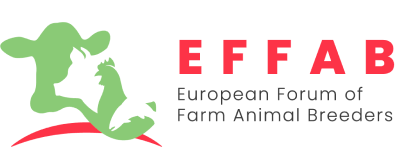The Code EFABAR, the code of good practices for farm animal breeding, delves into the transformation of breeding practices over the past two decades, underscoring the shift from focusing on productivity to including new objectives and traits for a balanced approach. This transition is made possible by the progress in genomics and phenotyping tools and further knowledge of animal genetics, which help mitigate the negative genetic correlations between functional and productive traits.
Code EFABAR encapsulates six fundamental pillars of responsible and balanced breeding practices: animal welfare and health, mitigation and adaptation to environmental impact, efficient utilisation of resources, genetic diversity, product quality and quantity, and public and food safety.Adherence to Code EFABAR signifies breeders’ commitment to transparency and sustainable practices, prioritising the long-term interests of animals, the environment, and people, including farmers.
Code EFABAR offers a comprehensive framework for breeders across various species and farming systems. The code emphasises the responsible use of technologies, focusing on the integrity and well-being of breeding animals when developing and using technologies. It also underscores the importance of management practices and the significance of welfare during transport.
To conclude, Code EFABAR is a clear guide for breeders, outlining the principles and practices essential for responsible and balanced breeding. It encourages breeders to engage with stakeholders and the public to promote understanding and acceptance of their work. It serves as a benchmark for the sector, ensuring that breeders meet the highest standards of animal welfare, environmental sustainability, and socio-economic viability. By coactively embracing this standard, breeders demonstrate their continuous efforts towards sustainability.

